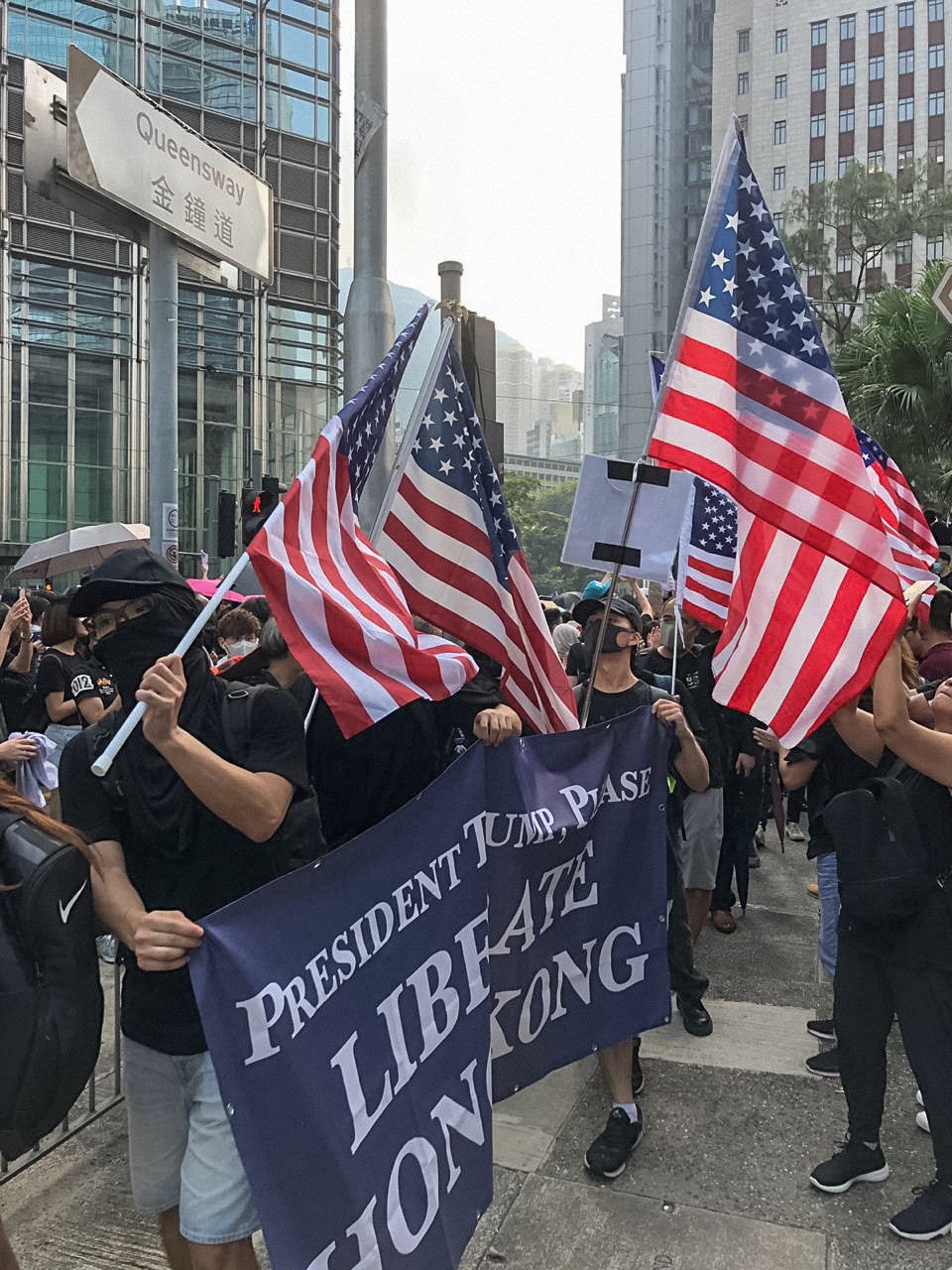The Balkanization of the World
IN FOCUS, 21 Oct 2019
Juan Eugenio Corradi | Opinion Sur – TRANSCEND Media Service
23 Sep 2019 – Far from having reached the end of history, there is profuse production of an out-of-control history—we produce more history than what we can consume. To curb this race we need to generate proposals.
On the eve of WWI, Winston Churchill uttered one of his brilliant wisecracks regarding geopolitics. He said. “The Balkan region[1] has the tendency of producing more history than it can consume.” He was referring to conflicts between minor countries that nevertheless were able to drag great powers towards a major confrontation, with disastrous consequences for humanity. Let us remember that Sarajevo’s spark lit the wick of WWI.
Today, this panorama iterates but at a larger scale and with the aggravating factor that there are many regions with the tendency to produce explosive and out-of-control conflicts. Even worse, the great powers too tend to produce conflicts without caring for the consequences, as their governments have been seized by nationalist, populist, and irresponsible leaders. Some examples will illustrate my point. The new mercantilist isolationism of President Trump is the primus inter pares of this series of self-absorbed countries, with the aggravating factor that it is still the world’s leading country. In other latitudes, Syria was destroyed and Yemen is on its way of being destroyed by civil wars exacerbated by the interference of foreign powers with agendas that have nothing to do with the wellbeing of those peoples. As stated by Jose Antonio Zarzalejos, “We are already at the same social and intellectual level of Europe’s great narrator from the first 35 years of last century, Stefan Zweig, one of whose works, not in vain, was called The World of Yesterday. Memories of a European (1942). It is the exact world we live in now: living in a world of Balkan matrix[2].”
The only contrasting example to western nationalist isolationism (that in some cases is nihilist and suicidal) is China, whose advance to the first place as world power, as it is said there, has its “own characteristics[3].” Which are them? They are the systematic and patient advance of their interests around the world, trafficking assistance and influence, in exchange for an alignment, submission, or at least abstention, regarding the positions dictated by Beijing. Beijing remains disinterested in the ideas and values of countries that enter its orbit. As a centripetal empire[4], it is only interested in the (material and/or symbolic) tribute. Chinese “soft power” is the diplomatic way of the I-don’t-care (indifference)[5].
Let us go back to western world. There are two constants in the examples I quote—and I could quote many more—first, the self-absorption of politics (primary concern for “what belongs to oneself” without caring for the global context). Second, the polarization within that “turning your back on” the world, that is, division of societies in halves or intransigent and rabid fragments—what signals the end of politics as it was conceived in previous centuries, that is, the transformation of rival in enemy, anticipated by theorist Carl Schmitt. There is no democracy that can withstand this double contingency. With this caveat: today’s democracies do not succumb to coups d’état but rather to their own dynamic. New authoritarianism is installed in many cases by popular acclamation.
As the Israeli historian van Creveld said, in this post-globalization era, conventional war between equals recedes into the background, in favor of internal war, though with foreign interference, of course (asymmetric war). It is important to highlight this fatal peculiarity of XXI century geopolitics. Faced with ever more severe and urgent planetary challenges, countries first get distracted and then bleed in internal struggles, or in struggles between states through a third party (proxy wars) that take advantage of such internal struggles. The whole is inferior to the sum of its parts.
If there is something worse than the unfair globalization we had to deal with until now is what we see is coming next: the end of globalization in favor of a wrongly understood “sovereignty.” The reaction against globalization ills—both coming from the right or the left, to use an already obsolete dichotomy—fails to care for the general wellbeing, as it can no longer be national only planetary.
A current example of the dialogue of the deaf is the altercation between the presidents of France and Brazil. To an arrogant and post-colonialist interference of France to “help” extinguishing the fires in the Amazonia, Brazilian executive answered that his country has all the right to abuse the environment as it was once done by today´s developed countries—as if the environment should be held up to the need of remediating a historical injustice. It is a pernicious and puerile reasoning, a fight from a kindergarten, today translated to a tropical garden. “Mummy, it was him who started it.”
This ends with a somber corollary, the tragedy of the commons at planetary level—a Götterdämmerung (the twilight of the gods, immortalized in Richard Wagner’s famous opera) with several possible and alternative scenarios of general destruction. Far from having arrived to the end of history, we find a profuse production of an out-of-control history—more history than what we can consume. Another example can illustrate the situation: nothing more and nothing less than a nationalist assault to English parliamentary democracy, in favor of an alleged sovereignty in front of European Union. The only accomplishment of this assault—today in the hands of an irresponsible prime minister—is undoing valuable alliances and at the same time, totally losing control of the situation. In the British case, the thirst for power damages both the national interest and the European interest and, thus, the world’s.
The path is as follows: consolidate power at any cost and once government is seized with tricky arguments, not knowing what to do when faced with the consequences. It is a pure case of “I don’t care” tried in the last century with catastrophic consequences, forgotten today. I can quote other examples, such as: the attempt of seizing power (always through the electoral process) by the Italian Lega Nord; the formally “democratic” consolidation of the neo-fascist power of Hungarian prime minister; la politique du pireby French nationalists to name a few, and in general the boom of a new “anti-liberal” and plebiscitary democracy, foreseen a hundred years ago by Max Weber. Various are the causes (rampant inequality, corruption of the elites, selfish mercantilism at the national as well as individual levels, identity anguish, manipulation of new media, etc.) but the remedy is the same, though difficult to achieve: organization and different and reasonable programs of government and “governance.” Today’s world is full of protests and lacks proposals.
Protest without proposals feeds on itself and ends up in fatigue or even worse in repression, as it seems to happen in Hong Kong. Peter Baer, a sociologist from Hong Kong, argues within the center of protests, that the protest movement in Hong Kong resembles western pro-democracy and human rights movements. However, the eastern world is different. Part of the Chinese elite wants more freedoms, but this sentiment is not necessarily shared by the rest of society, at least within the Popular Republic. The democratic movement of Hong Kong is stronger than similar movements in continental China, in large part due to the English cultural and institutional legacy (not every colonialism is totally harmful). Suffice to visit Singapore, a similar city-state, to notice that this is a completely different society that does not highlight individual rights, but rather hierarchy, collectivism, and deference towards authority. The enthusiasm of Hong Kong’s youth is admirable. They fight for values that once generated enthusiasm in the west but that today are eroded by a widely spread “I-don’t-care” attitude. Asia in general is a “planet” with other values that will become more common as the continent returns to be the geopolitical center in the future with a tired and tributary west.
NOTES:
[1] . Countries that occupy the Balkan Peninsula are: Albania, Bosnia and Herzegovina, Bulgaria, Croatia, Slovenia, Greece, Macedonia, Rumania, Turkey (in Europe) and Yugoslavia (Serbia and Montenegro).
[2] . https://deverdaddigital.com/la-nueva-balcanizacion-de-europa/ Kissinger
[3] . While the market in China plays a central role for economic growth, pragmatic regulation of State aims at assuring that it benefits the entire population, but without democratic participation.
[4] . As Henry Kissinger clearly points out, western empires were and are centrifugal, that is, focused on promoting values and ideas in exchange for benefits.
[5] . See Kissinger’s opinion at: https://www.nytimes.com/2011/05/10/books/on-china-by-henry-kissinger-review.html
__________________________________________________
![]() Opinion Sur is a non-governmental, nonprofit group from Argentina dedicated to promoting sustainable economic and social growth in developing countries. Opinion Sur creates original ideas and strategic action plans to share with policy makers, entrepreneurs, academics, NGOs, and the public through advisory services, and a series of products: two monthly online publications – Opinion Sur and Opinion Sur Joven. Through Opinion Sur Journal, a free and non-partisan online publication, it circulates ideas that contribute to the sustainable development of countries in the Southern Hemisphere. This publication, which is also available in Portuguese and Spanish, focuses on three complimentary areas: Development; Geopolitics; and Transformations. Currently, there are more than 70,000 subscribers spanning across the five continents. More…
Opinion Sur is a non-governmental, nonprofit group from Argentina dedicated to promoting sustainable economic and social growth in developing countries. Opinion Sur creates original ideas and strategic action plans to share with policy makers, entrepreneurs, academics, NGOs, and the public through advisory services, and a series of products: two monthly online publications – Opinion Sur and Opinion Sur Joven. Through Opinion Sur Journal, a free and non-partisan online publication, it circulates ideas that contribute to the sustainable development of countries in the Southern Hemisphere. This publication, which is also available in Portuguese and Spanish, focuses on three complimentary areas: Development; Geopolitics; and Transformations. Currently, there are more than 70,000 subscribers spanning across the five continents. More…
Go to Original – opinionsur.org.ar
Tags: Conflict, Corruption, History, Politics, Power, West, World, World leaders
DISCLAIMER: The statements, views and opinions expressed in pieces republished here are solely those of the authors and do not necessarily represent those of TMS. In accordance with title 17 U.S.C. section 107, this material is distributed without profit to those who have expressed a prior interest in receiving the included information for research and educational purposes. TMS has no affiliation whatsoever with the originator of this article nor is TMS endorsed or sponsored by the originator. “GO TO ORIGINAL” links are provided as a convenience to our readers and allow for verification of authenticity. However, as originating pages are often updated by their originating host sites, the versions posted may not match the versions our readers view when clicking the “GO TO ORIGINAL” links. This site contains copyrighted material the use of which has not always been specifically authorized by the copyright owner. We are making such material available in our efforts to advance understanding of environmental, political, human rights, economic, democracy, scientific, and social justice issues, etc. We believe this constitutes a ‘fair use’ of any such copyrighted material as provided for in section 107 of the US Copyright Law. In accordance with Title 17 U.S.C. Section 107, the material on this site is distributed without profit to those who have expressed a prior interest in receiving the included information for research and educational purposes. For more information go to: http://www.law.cornell.edu/uscode/17/107.shtml. If you wish to use copyrighted material from this site for purposes of your own that go beyond ‘fair use’, you must obtain permission from the copyright owner.


